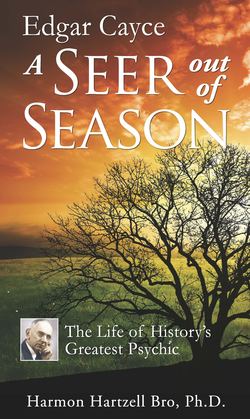Читать книгу Edgar Cayce A Seer Out of Season - Harmon Hartzell Bro - Страница 26
На сайте Литреса книга снята с продажи.
First of All an Emergency Clinic
ОглавлениеBesides, every hour given to such psychological archaeology was an hour taken from someone waiting as though in an invisible line outside Cayce’s study, hurting with leukemia or polio, or sweating with fever, or coughing with tuberculosis. Cayce’s work was decisively medical. All that lacked to make his home and office a clinical treatment center were the smell of antiseptics and some white jackets. Everything important was molded around the relief of pain: the mail, the phone calls, the small but growing research, the day’s most earnest conversation, an unpublicized visit of a physician or nurse. Cayce’s house might have been an emergency station set up near a catastrophe, taking in each one who came with a wound or hardship.
This was not forced on him by circumstance but came from his own choice and purpose. He was sure his gift was rooted in direct service of those in need. Were he to get too far away from that, it might soon distort or wither. To him the trances were not just his private prowess, but part of a circuit much larger than he which reached from an invisible and transcendent source of goodness directly to someone’s scabs or cramps, tumors or aches, birthing or dying. If the lightning of helpfulness in our midst also lit up the far sky now and then, so that lifetimes and mysteries of the soul could be glimpsed, that was a bonus. But for him the central business was medical service. Listening to him, one wondered whether the urgent ministering to those in pain helped to keep him sane in a wholly unlikely vocation that had brought him extremes of both scorn and adulation.
Might his priorities be reversed after his death by those drawn to study the transcripts of his readings? He could be turned into a revealer of arcane truths, with his work of lifting physical suffering from others shoved into the background. There was plenty in the history of sects and movements, including the transformation of the work of the active young healer and teacher from Nazareth, to indicate how quickly and decisively such change could occur. As had happened in churches, future students of Cayce might find it too frustrating, taxing, and expensive to focus on failed organs, wrenching injuries, damaging childbirth, chronic fevers, convulsions, and schizophrenia. Where Cayce might want a hospital for the blind or deaf, others might prefer to remove the blindness or deafness of their fellows to metaphysical mysteries of rebirth. Power and wisdom were forever pushing themselves beyond their roots of caring, like mindless social climbers.
Watching Cayce at work was like staring into a flame, making the mind go momentarily numb. For despite the perplexing past-life claims, all too much of what he produced was reality that we and others could verify. The unending accurate medical data, the fitting details of individual history, personhood, talents, relationships, and choices were staggering. Had Cayce not asked me to make the trance sessions part of my job, I might well have absorbed myself in the backed-up correspondence, or editing the small monthly Bulletin of the Association, or adding to the booklets on specific diseases as his readings saw them. (We had collections on appendicitis, arthritis, the common cold, epilepsy, intestinal fever, scleroderma, streptococcus infection, and multiple sclerosis.) Then I could have attended the trance periods from time to time and settled for being amazed and stimulated. But Cayce beckoned me to his study at the appointed hours each day, and I put down my projects, preparing to be as calm and cheerful as I could before what was necessarily as shattering to my University of Chicago worldview, and therefore to my personal sense of identity, as it was adventurous.
